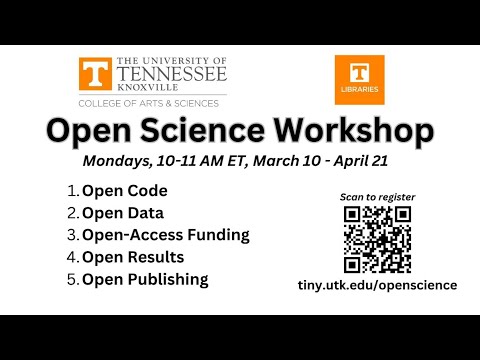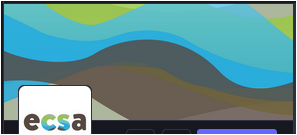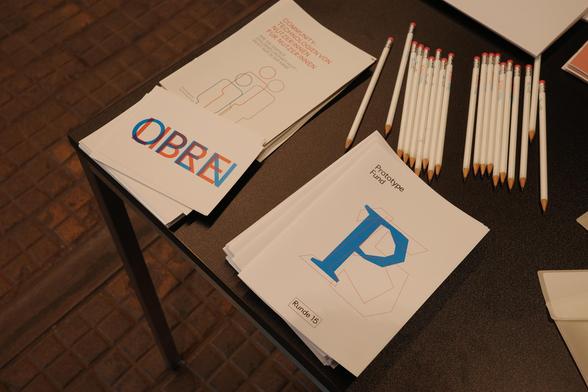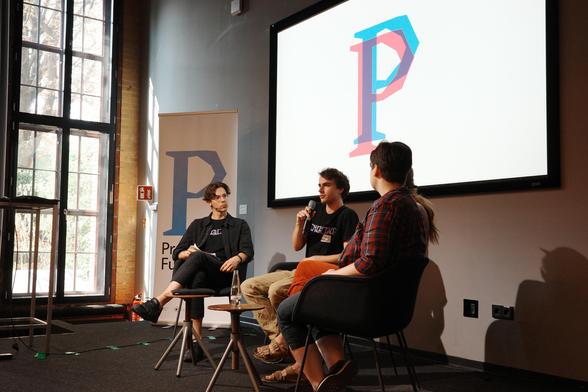
@kaitiwu
- 1 Followers
- 13 Following
- 9 Posts

grew up on a pentium 486
now I’m running spatial models trying to prove that trees & birdsong are part of economic infrastructure too.
wild upgrade tbh.
Das freut mich besonders: @ECSA Vereinigung für Bürgerwissenschaft ist jetzt im Fediverse! Willkommen.
A warm welcome to the European Citizen Science Association @ECSA
Bienvenue à l'Association européenne des sciences citoyennes
Ένα θερμό καλωσόρισμα στην Ευρωπαϊκή Ένωση Επιστήμης των Πολιτών
熱烈歡迎歐洲公民科學協會
"Der Prototype Fund ist ein voller Erfolg und hilft, Innovationen niedrigschwellig anzuschieben" - vielen Dank für die Erwähnung im Bundestag, Anna Kassautzki!
Und ja: Mehr Geld für Open Source bedeutet mehr digitale Resilienz, mehr Souveränität und mehr Innovation!
"We introduce The AI Scientist, which generates novel research ideas, writes code, executes experiments, visualizes results, describes its findings by writing a full scientific paper, and then runs a simulated review process for evaluation."
Paper: https://arxiv.org/abs/2408.06292
Blogpost: https://sakana.ai/ai-scientist/
Code auf Github:
https://github.com/SakanaAI/AI-Scientist?tab=readme-ov-file
The AI Scientist: Towards Fully Automated Open-Ended Scientific Discovery
One of the grand challenges of artificial general intelligence is developing agents capable of conducting scientific research and discovering new knowledge. While frontier models have already been used as aides to human scientists, e.g. for brainstorming ideas, writing code, or prediction tasks, they still conduct only a small part of the scientific process. This paper presents the first comprehensive framework for fully automatic scientific discovery, enabling frontier large language models to perform research independently and communicate their findings. We introduce The AI Scientist, which generates novel research ideas, writes code, executes experiments, visualizes results, describes its findings by writing a full scientific paper, and then runs a simulated review process for evaluation. In principle, this process can be repeated to iteratively develop ideas in an open-ended fashion, acting like the human scientific community. We demonstrate its versatility by applying it to three distinct subfields of machine learning: diffusion modeling, transformer-based language modeling, and learning dynamics. Each idea is implemented and developed into a full paper at a cost of less than $15 per paper. To evaluate the generated papers, we design and validate an automated reviewer, which we show achieves near-human performance in evaluating paper scores. The AI Scientist can produce papers that exceed the acceptance threshold at a top machine learning conference as judged by our automated reviewer. This approach signifies the beginning of a new era in scientific discovery in machine learning: bringing the transformative benefits of AI agents to the entire research process of AI itself, and taking us closer to a world where endless affordable creativity and innovation can be unleashed on the world's most challenging problems. Our code is open-sourced at https://github.com/SakanaAI/AI-Scientist
https://link.springer.com/article/10.1007/s11192-024-05127-8
Tweeting and retweeting scientific articles: implications for altmetrics - Scientometrics
Despite differences in extent of engagement of users, original tweets and retweets to scientific publications are considered as equal events. Current research investigates quantifiable differences between tweets and retweets from an altmetric point of view. Twitter users, text, and media content of two datasets, one containing 742 randomly selected tweets and retweets (371 each) and another with 5898 tweets and retweets (about 3000 each), all linking to scientific articles published on PLoS ONE, were manually categorized. Results from analyzing the proportions of tweets and retweets indicated that academic and individual accounts produce majority of original tweets (34% and 55%, respectively) and posted significantly larger proportion of retweets (41.5 and 81%). Bot accounts, on the other hand, had posted significantly more original tweets (20%) than retweets (2%). Natural communication sentences prevailed in retweets and tweets (63% vs. 45%) as well as images (41.5% vs. 23%), both showing a significant rise in usage overtime. Overall, the findings suggest that the attention scientific articles receive on Twitter may have more to do with human interaction and inclusion of visual content in the tweets, than the significance of or genuine interest towards the research results.
Auch als OpenPV stellen wir heute beim DemoDay des @PrototypeFund vor, was wir in den letzten sechs Monaten Förderzeit entwickelt haben.
#prototypedemos
https://mastodon.social/@PrototypeFund/113072847813985950
Mit dem ersten Panel bleiben wir beim Ehrenamt:
@alertrix koordiniert EInsatzkräfte per Matrix-Protokoll, der Civil Case Manager organisiert Daten um humanitäre Einsätze und die Studierenden-Finanz--Software StuFiS verringert den Administrations-Aufwand für Studierendenschaften. Alle haben gemein: Ehrenamt nützt uns allen - es gibt aber nur selten passende Software von der Stange. Also müssen wir selber ran!





